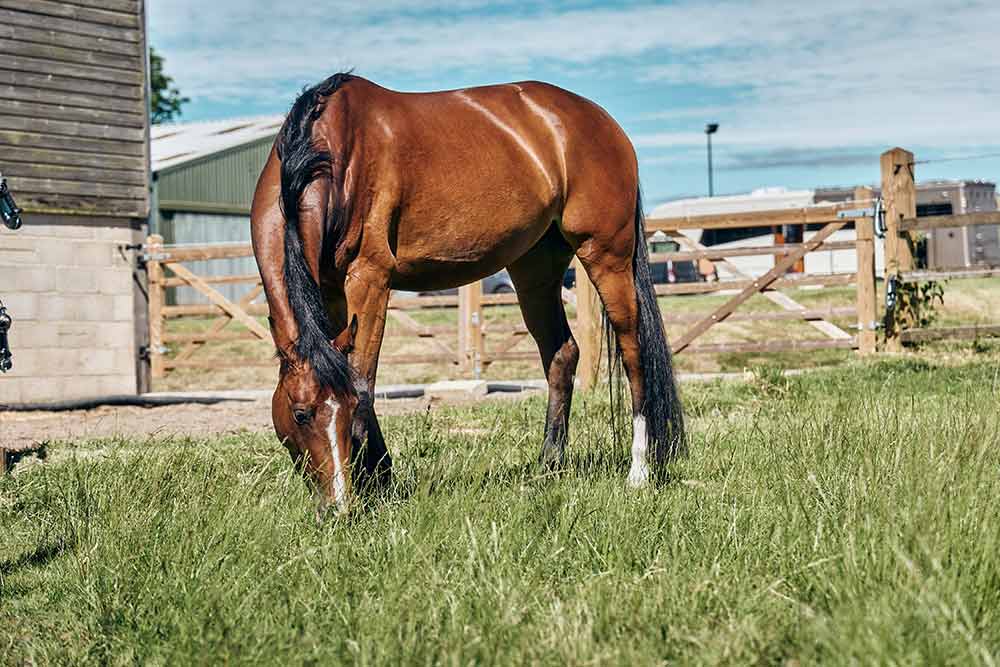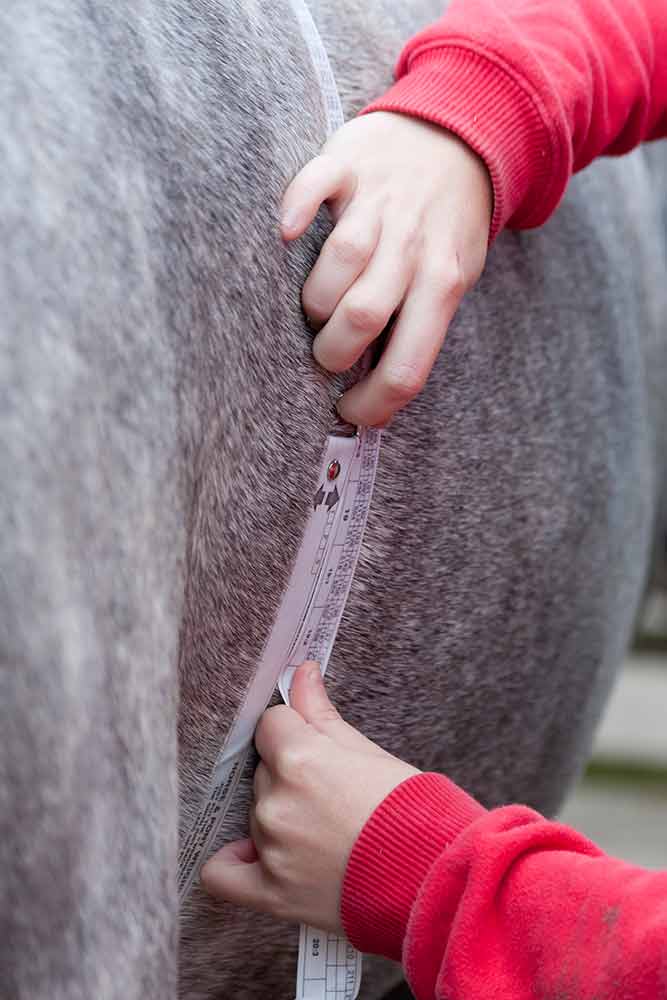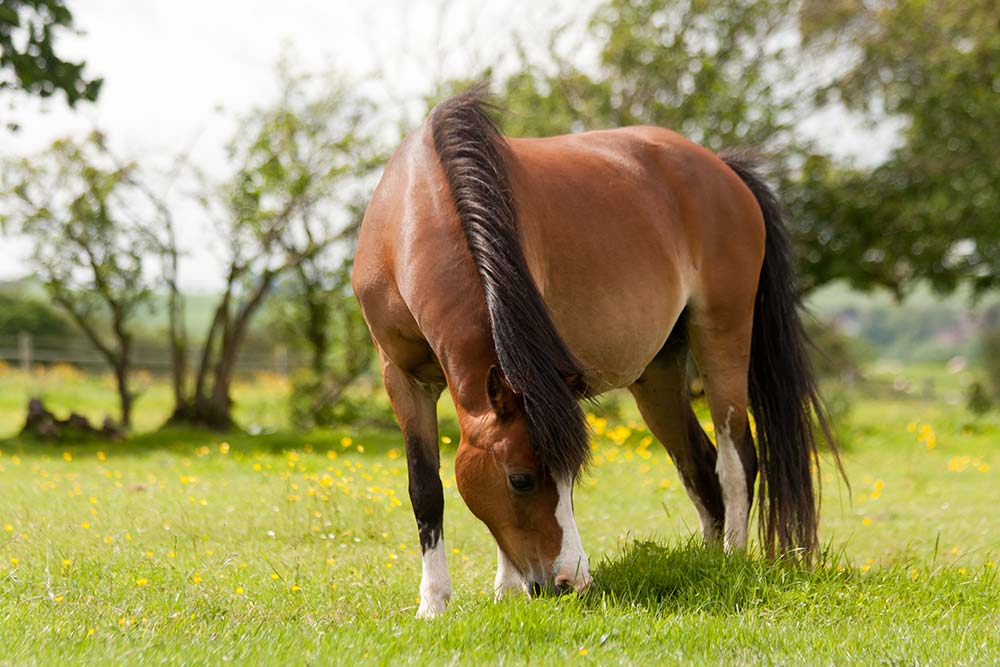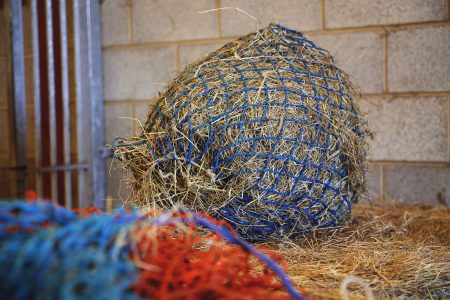Summer is here and it’s brought more than just sunshine. Summer weather can make pasture conditions highly unpredictable. Factors like heat, rainfall, soil quality, plant species, and how heavily the field is grazed all influence not just how much grass is available, but also its nutritional content—especially in terms of calories and water-soluble carbohydrates (WSC). Grass naturally produces simple sugars through photosynthesis, and when production exceeds the plant’s immediate needs, it stores the excess as fructan. Although fructan isn’t technically a sugar, it’s still a carbohydrate and is processed differently in the horse’s digestive system. What makes this tricky is that both sugar and fructan levels in grass can shift dramatically within just a few hours, especially after rain follows a dry spell.

Whether your horse tends to gain weight easily or struggles to hold condition, now’s the time to stay one step ahead. Managing their diet and grazing access during these unpredictable conditions is key to keeping them healthy all summer long.
But why is weight management especially important now?
Horses need a healthy diet and regular exercise to stay in good shape, just like us humans do. Whether its trouble maintaining a healthy body condition or excessive weight gain, it’s important we do our bit to maintain our horse’s health and well-being. Despite its seemingly harmless appearance, summer grass can be high in sugars.

So how can I help manage my horse's weight this season?
We have put together a few simple measures that can help to reduce any potential issues before they arise.
- Strip grazing is useful to not only protect your fields and healthy grass growth but also helps manage your horses grass intake.
- If you are fortunate and your fields are extremely lush, turning out in ménages with (soaked) hay is another useful idea. It still allows your horse to stretch their legs reducing time in the stable and allow you to be able to monitor the amount they are eating.
- A grazing muzzle is a helpful tool in slowing down eating. Studies have shown it can reduce intake by up to 60-80%; however, these should be introduced slowly and under supervision to begin with and not to be left on 24/7.
- Keep the score! Monitoring your horse’s body condition through regular check-ins can be a great way to keep track of your horse’s weight. You can use a weigh tape to track changes and adapt your management regime as necessary.
- A low-sugar, high-fibre diet is key! Feeding a quality fibre source like Speedi-Beet supports digestive health and can help your horse maintain a steady, healthy weight.
- Get moving! It is important to encourage regular movement through varied types of exercise, whether that’s hacking, lunging, schooling, or competing.
- Change up turn-out times! During the different stages of the day when grass grows, the levels of fructans differ. If possible, turnout at night, which is when the lowest amount of sugar is produced in grass.
- Feeding a fibre feed like Speedi-Beet before turning your horse out can also help prevent them from wanting to gorge on grass, so they feel fuller while consuming less calories.

Join us for our summer campaign!
This Summer, we’ll be sharing our expert advice and feeding tips all around weight management. Keep a close eye on our social media channels, website, and newsletter for practical guidance to support you in helping to manage your horse’s weight this season!
Contact the team here at British Horse Feeds for more information and advice on 01765 680300.




